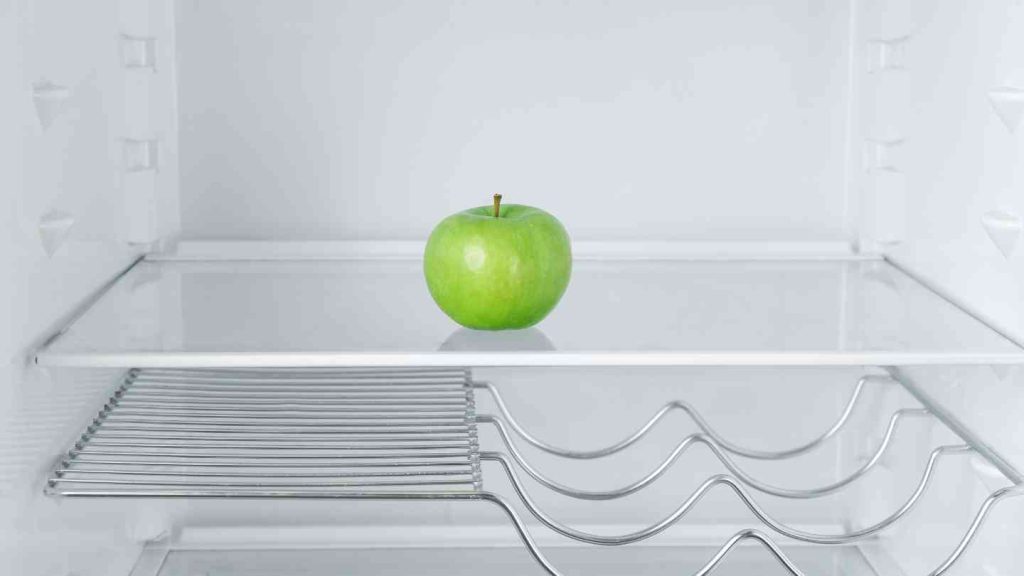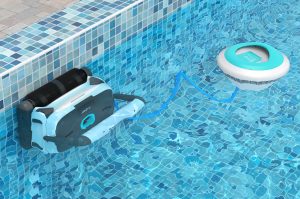Apples are one of the most popular fruits in the world and for good reason. Whether you’re looking for a quick snack or a delicious ingredient for a recipe, apples are always a reliable choice. However, one question that many people ask is whether or not apples should be refrigerated. In this guide, we’ll provide a comprehensive guide to answer this question and other related ones.
Refrigerated vs. Unrefrigerated Apples
Before we get into the specifics of whether or not to refrigerate apples, let’s first look at the key differences between refrigerated and unrefrigerated apples.
When apples are refrigerated, they can last for several weeks, which is great if you need to store them for an extended period of time. However, the downside is that refrigerated apples can sometimes lose their flavor and texture. On the other hand, unrefrigerated apples tend to have a better taste and texture, but they don’t last as long and can quickly become soft and mealy.
What Happens When Apples Are Refrigerated?
Now that we know the key differences between refrigerated and unrefrigerated apples, let’s take a closer look at what happens when apples are refrigerated.
When you put apples in the refrigerator, the cold temperature significantly slows down the ripening process. This is good news if you want to keep your apples fresh for a longer period of time. However, the cold air in the fridge can also cause the apples to lose moisture and become slightly dry. This can impact their texture and make them feel less “crisp.”
Another potential issue with storing apples in the fridge is that the ethylene gas, which is released by some fruits as they ripen, can cause the apples to overripe if they are stored next to other fruits. This is why it’s important to store your apples separately from other fruits in the fridge.
What Is the Best Way to Store Apples?
So, now that we know what happens when you refrigerate apples, what is the best way to store them?
The first thing to consider is whether or not you’re planning to eat your apples right away or if you want to store them for a longer period of time. If you’re planning to eat them right away, then there’s no need to refrigerate them. Instead, you can store them in a cool, dry place like a fruit bowl or a cool pantry.
If you want to store your apples for an extended period of time, then refrigerating them is the best option. However, it’s important to wrap each apple in paper or a reusable produce bag to prevent them from losing moisture in the fridge. This will help to maintain their texture and flavor for longer.
How Long Do Apples Last Unrefrigerated?
If you decide to store your apples unrefrigerated, then it’s important to know how long they will last. The answer to this question depends on a variety of factors, including the type of apple, how ripe it is, and the temperature and humidity of the environment.
In general, most apples will last for about a week or two when stored unrefrigerated. However, if the environment is particularly warm or humid, then they may start to spoil after just a few days. It’s important to keep a close eye on your apples and check them regularly for any signs of spoiling.
How Long Do Apples Last in the Fridge?
If you decide to refrigerate your apples, then you can expect them to last significantly longer than if you store them unrefrigerated. In general, most apples will last for several weeks in the fridge, although this will depend on factors like the type of apple and how ripe it is.
Some apple varieties, like Granny Smith and Fuji apples, tend to have a longer shelf life than others and can last in the fridge for up to a month or more. However, it’s always a good idea to check your apples regularly and discard any that show signs of mold or spoilage.
How Not to Store Apples?
Now that we’ve covered how to store apples, let’s take a look at some things you should avoid when it comes to storing apples.
Firstly, you should never store your apples next to other fruits in the fridge. As we mentioned earlier, the ethylene gas released by some fruits can cause the apples to overripe and spoil more quickly. Instead, store your apples in a separate compartment or produce drawer in the fridge.
Another mistake to avoid is washing your apples before storing them. While it’s important to wash your apples before eating them, washing them before storage can cause them to become damp and increase the risk of mold growth.
Lastly, never store your apples in the freezer (the coolest part of the refrigerator), as freezing will only make the apple melt when you are ready to use them.
Related: where in the refrigerator should you store raw meat
Can I Store Apples and Other Fruits Together?
We briefly touched on this question earlier, but let’s take a closer look. Can you store apples and other fruits together in the fridge?
The answer to this question is a bit more complicated than a simple “yes” or “no.” Some fruits, like bananas and avocados, release large amounts of ethylene gas as they ripen. This gas can cause other fruits, like apples, to overripe and spoil more quickly if they are stored together in the same container.
However, there are some fruits, like pears, that actually benefit from being stored with apples. Apples also release a small amount of ethylene gas as they ripen, which can help to ripen other fruits like pears more quickly.
So, while it’s generally a good idea to store apples separately from other fruits in the fridge, there are some exceptions to this rule.
How Do They Keep Apples Fresh for Months?
Finally, let’s take a look at how commercial apple growers are able to keep their apples fresh for months at a time.
One common method used by growers is called “controlled atmosphere storage.” This involves storing the apples in a low-oxygen environment, which can help to slow down the ripening process and extend their shelf life.
Another method is to apply a wax coating to the apples to help prevent moisture loss and protect them from decay. This coating is completely safe to eat and is often used on fruits and vegetables to extend their shelf life.
While these methods are not practical for the average homeowner, they do help to show just how much science and technology goes into keeping our food fresh and safe to eat.
Conclusion
In conclusion, the question of whether or not apples should be refrigerated is multifaceted and depends on a variety of factors. If you’re planning to eat your apples right away, then storing them unrefrigerated is fine. However, if you want to store them for an extended period of time, then refrigerating them with some precautions is the best option.
By following the tips and guidelines outlined in this guide, you can ensure that your apples stay fresh and delicious for as long as possible.






